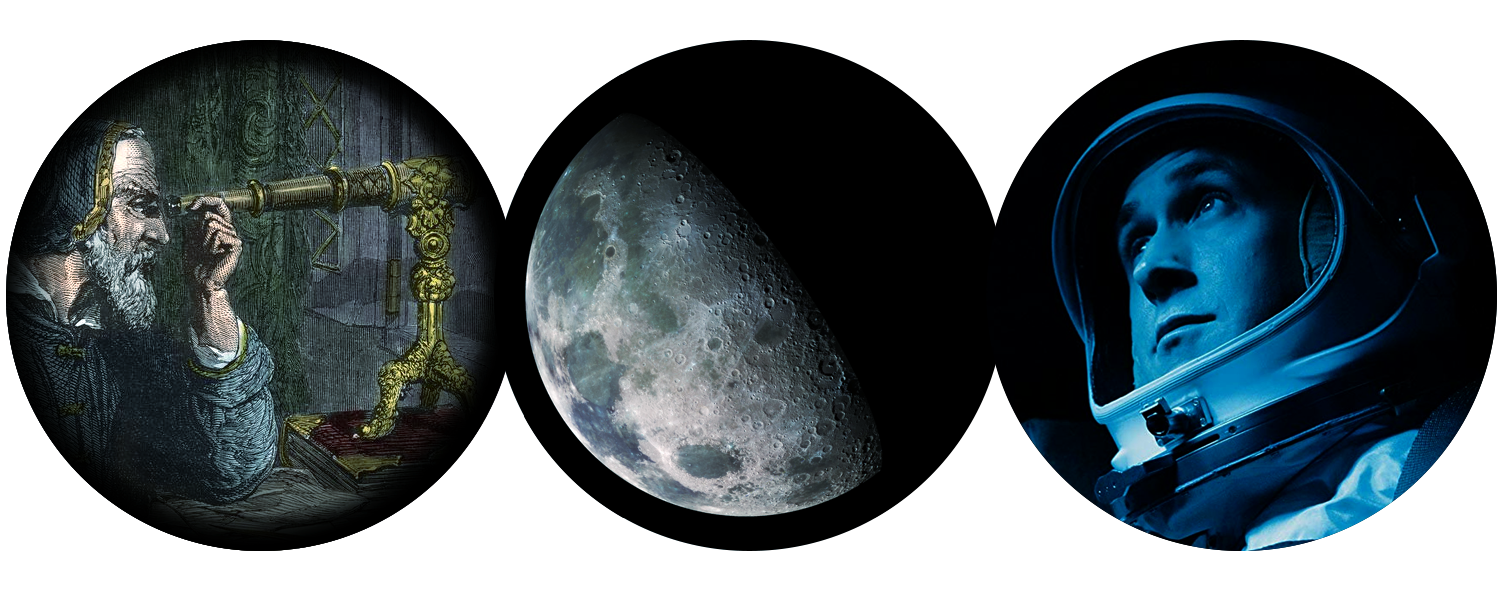

I have a confession. Or, rather, I should just say that I have something to tell you–because I don’t feel ashamed or in need of absolution. I wanted to write about First Man, but I fell asleep.
Exhaustion set in with the first sequence, as the film moved from the familiar (but no less effective) stress of near-disaster aboard a shaky rocket-powered plane to a heart-dropping descent into the banal. But I didn’t actually fall asleep until the Apollo 11 launch scene. I remember waking briefly during the countdown and struggling with each number to keep my eyelids open, thinking, Shit, you’re supposed to watch this part! Even if I hadn’t fallen asleep, I don’t know how much I’d have to say about the movie: a dweeby daredevil’s ascent to space captain filmed as a Mad Men spin-off.
The space biopic is a relatively puny genre, and the patriotic tedium of watching a bunch of men lob technicalities back and forth speaks to the lack of actual inspiration. 1983’s The Right Stuff was panned by the public but received eight knee-jerk Oscar nominations (and won four, a formality), and it has since been declared a film of great import. Space films that do please don’t necessarily skimp on patriotism, but they do have to insert aliens and asteroids and nuclear payloads to make it interesting.
The tedium of rocket science obscures the historical knot of empiricism and empire. A different kind of first man, Galileo has a different sort of biopic, too. A play titled Life of Galileo was written by Bertolt Brecht, the Marxist dreamer of modern theater, and attempts to portray the scientist as rebel visionary. The plot dwells too much in the discovery narrative typical of Galileo’s glorification as a man of science. But Brecht also touches on the sinister uses of knowledge and the difficulties of producing knowledge for a greater good. Galileo scoffs at the supposed privilege of “freedom of research,” and he makes clear that it is of no use without freedom of time.
Today, space research is funded by the military and by venture capital because the world’s resources are organized in such a way that nobody else can afford it. When told that he needs to make his scientific research more commercially lucrative, Brecht’s Galileo responds, “Free trade, free research. Free trading in research, eh?”–hinting at the cynical drive for profit that hides behind invocations of research for the greater good. These are questions often left out when Americans consider the benefits of space research and space travel. In First Man, the brute show of scientific prowess–Neil Armstrong’s famous walk–is understood as a social good rather than an invocation of military might.
Biopics are overwrought not just in their cold attempts at sentimentality (having to wring emotion from tight-lipped white men who work too much is an uncomfortable rub) but also in their propaganda. Beyond the nationalist backslapping of these Cold War victory fantasies, a larger narrative animates it all, a hubristic story that people tell of space travel. There is, in fact, an internal contradiction to space aesthetics: outer space is meant to both humble us before the great mystery and inflate us with pride at overcoming the void. In First Man, the technological sublime–awe invoked not through landscape but man-made interventions on landscape–eclipses the space sublime. It is a feeling perhaps first intimated in the eyepiece of Galileo’s telescope.
And now, a brief detour to the well-worn tale of the dawn of empiricism. In 1543, Nicolaus Copernicus published his heliocentric model of the solar system. The sun, he said, was the immovable center around which all the planets, including Earth, rotated. It is often misunderstood that the sin for which Galileo, following the Copernican heliocentric model, was persecuted was removing Earth from some esteemed position in the center of the universe. But for church officials in the 16th and 17th centuries, that center was a pit. Earth was the sordid habitance of fallen man. To posit that the Earth was a celestial body implied that it was not the heavy globe of sin Catholic theology imagined it was. In “The Great Copernican Cliché,” published in the American Journal of Physics, Dennis Danielson traces how, from Aristotelian to Ptolemaic models, the center meant the filthy, bogged-down base. Galileo offended not because he dethroned the Earth but rather because he had dared suggest our home world sung with the heavenly spheres in their melodic transit around the sun.
One way in which Galileo proved the Copernican model of the solar system was through his observation of the moon, which appeared through his telescope as something completely different from the perfectly rounded sphere that theology-inflected science had described and expected of the “heavens.” The Roman Inquisition tried Galileo for heresy in 1633, and he spent the rest of his life under house arrest. The actual glorification of man inherent to the Copernican Revolution is that humanity might know and understand the heavens, proven in part by Galileo’s ability to pierce the mystery with his telescope. In First Man, much is made of man’s technical triumph over the cosmos. It harps on that Armstrong is an engineer, not just some meathead Marine.
What kind of story of humanity is being told in the line we wait the whole of First Man to hear? “One small step . . .” Who is the mankind who takes the giant leap? And to where? The idea that all of mankind jumps forward in Armstrong’s step suggests that the mankind of the future and of progress is a scaled-up collective of strapping, square, straight martyrs. Their race and gender default to the obvious. In an ironic moment of self-critique in the movie, Gil Scott-Heron’s song-poem “Whitey on the Moon” plays during a montage that serves as the sole nod to a social world outside Armstrong’s life: “The man jus’ upped my rent las’ night / (’cause Whitey’s on the moon.) / No hot water, no toilets, no lights / (but Whitey’s on the moon.)” Scott-Heron’s words deserve a much better context than this sequence, which is only a kind of floating index for the unrest and resistance movements that occurred while the military mission for the moon was working toward a much different future for humanity.
The Apollo program embodies a particularly American hubris, one integral to a story our democracy tells about itself. It is also connected to a long history of how outer space, in particular the moon, has appeared to the explorer, the capitalist adventurer, the space dad: all versions of sovereign white manhood. Outer space has been a backdrop for Western man to define himself as protagonist since Galileo, who claimed the Earth was of the heavens and that the heavens were knowable–by a man with the right stuff.


How We Get To Next was a magazine that explored the future of science, technology, and culture from 2014 to 2019. This article is part of our “Space” Beat, which asks: If humans are to leave Earth and become an interplanetary species, whose vision of the future will be realized? And who will get to be a part of it? For more dispatches, click the logo.
